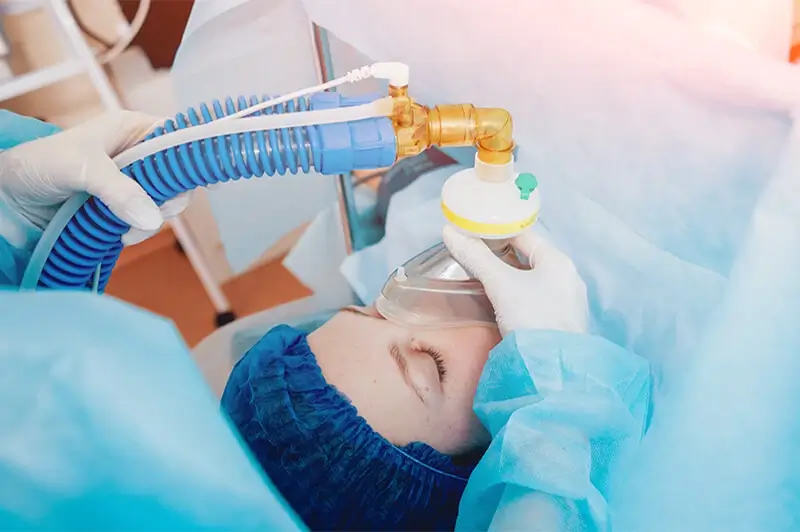Laughing Gas for Dental Use
Do you experience anxiety when preparing for a dental procedure? Don’t let your fear overcome you. Most importantly, don’t let your dental phobia prevent you from receiving the care you require to maintain good oral health. But what are your options? We want all of our patients to feel at ease, which is why Cure Dental offers nitrous oxide sedation.

What is Nitrous Oxide or Laughing Gas?
For many years, nitrous oxide has been the primary method of sedation in dentistry. Nitrous Oxide is a colorless, sweet-smelling gas that patients can breathe and experience mild amnesia and fall asleep, forgetting everything that occurred during their appointment. This helps patients calm down and become free of anxiety or fear of dental procedure.
- Nitrous oxide is completely safe; the patient receives 50-70% oxygen and at least 30% nitrous oxide.
- The patient can breathe on their own and control all of their bodily functions.
What are the benefits of using Nitrous Oxide?
- Sedation depth can be changed at any time to increase or decrease sedation.
- The patient doesn’t experience a “hangover” post sedation.
- Inhalation sedation is completely safe, with no negative effects on your heart or lungs.
- Gagging is greatly reduced with inhalation sedation.
- It works quickly because it reaches the brain in 20 seconds. Its relaxing and pain-killing properties develop in as little as 2-3 minutes.
Need a Dental Consultation?
When Should You Avoid the Use of Nitrous Oxide?
If you have been diagnosed with chronic obstructive pulmonary disease, you should not use Nitrous Oxide (COPD). Although there are no other major contraindications to using nitrous oxide, you should avoid it if you have emphysema, exotic chest problems, MS, a cold, or other breathing difficulties.
Nitrous Oxide Sedation at Cure Dental
This safe and effective solution allows our team to provide the treatment or procedure you require while keeping you completely calm and relaxed throughout your visit. Contact us today to see if you are a candidate for this common sedation technique.
Point to Remember
Before proceeding, you may want to request a trial with this type of sedation from your dentist.

